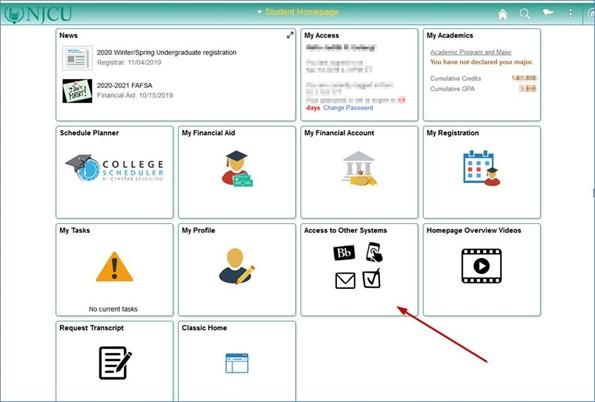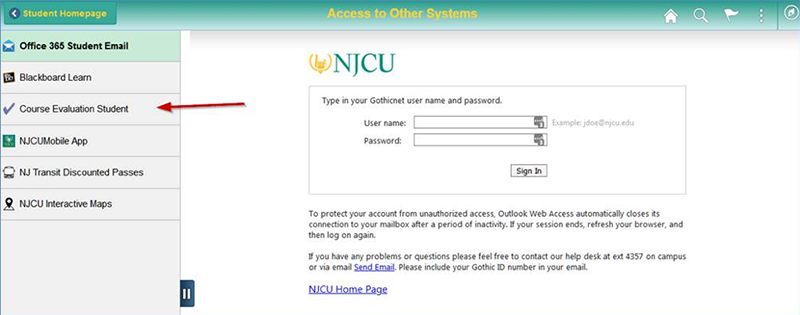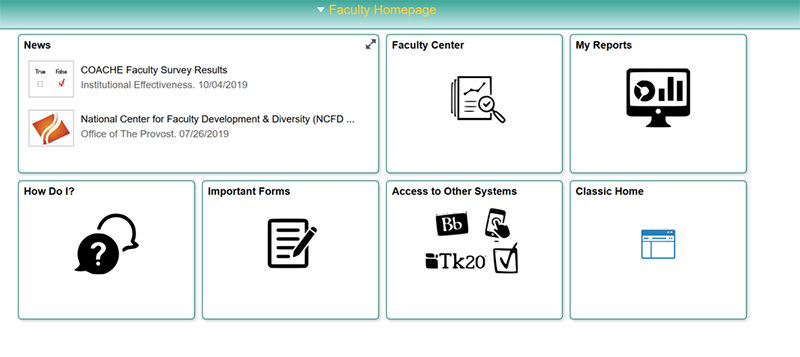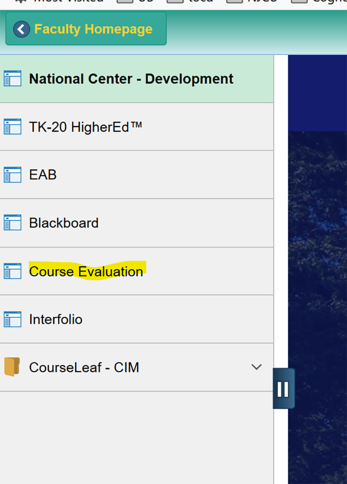Course Evaluations
Course Evaluations
About Course Evaluations
NJCU utilizes IDEA course evaluations to provide faculty with student feedback on instruction. Students complete the online evaluations near the end of each Fall and Spring semester. This page contains information on the following topics:
- Student Privacy and Anonymity
- Semester Schedule
- Accessing Course Evaluations
- Included/Excluded Classes
- Selecting Key Learning Objectives (faculty)
- Results
Student Privacy and Anonymity
Students’ participation in IDEA is anonymous. Instructors are able to track response rate, but they do not know whether an individual student has or has not completed the form. Instructors receive summaries of results, not individual results linked to any student.
Fall 2021 Open and Close Dates
| Session | Opens | Closes |
|---|---|---|
|
7-week, first session |
October 6 | October 12 |
| 7-week, second session | December 2 | December 8 |
| 15 -week, full semester | November 21 | December 12 |
Accessing Course Evaluations
Students and faculty access course evaluations through GothicNet.
Student Access
Students can access the evaluations by logging into GothicNet and clicking on “Access to Other Systems” and then “Course Evaluation Student”.
Faculty Access
Faculty can access course evaluations by logging into GothicNet and clicking on “Access to Other Systems” and then “Course Evaluation”
Included and Excluded Classes
Course evaluations is a university-wide process conducted in Fall and Spring. Courses taught in summer sessions are not evaluated. In addition, some independent courses (e.g., independent study, practicum, internship) are excluded. Excluded courses are below:
- ART 469, ART 490, ART 491, ART 492, ART 610, ART 643, ART 644, ART 647, ART 649, ART 650, ART 660, ART 661, ART 666, ART 671, ART 672, ART 701, ART 702, ART 703, ART 704, ART 711, ART 712, ART 713, ART 714, ART 1331, ART 1647
- BIOL 350, BIOL 450, BIOL 454
- BUSI 491, BUSI 492, BUSI 493, BUSI 599, BUSI 791, BUSI 792, BUSI 793, BUSI 799
- CHEM 492, CHEM 493
- CJ 671
- COUN 703
- ECE 331, ECE 470, ECE 605,ECE 609, ECE 623, ECE 650, ECE 1480
- EDTC 655, EDTC 662, EDTC 902, EDTC 903
- EDU 331, EDU 480, EDU 651, EDU 655, EDU 2655, EDU 681, EDU 683, EDUC 491, EDUC 492, EDUC 493
- ENGL 95, ENGL 96
- FINC 779, FINC 781
- HLTH 411, HLTH 435, HLTH 643, HLTH 660, HLTH 1435
- INTD 401, INTD 3400, INTD 6400
- ISCC 1492, ISCC 2492, ISCC 492
- ISFA 1492, ISFA 2492, ISFA 492
- ISH 1492, ISH 2492, ISH 492
- ISNS 1492, ISNS 2492, ISNS 492
- ISSS 1492, ISSS 2492, ISSS 3492, ISSS 492
- MATH 96, MATH 501, MATH 660, MATH 661, MATH 665
- MCC 417, MCC 617, MCC 660
- MDT 111, MDT 121, MDT 122, MDT 123, MDT 148, MDT 153, MDT 154, MDT 171, MDT 173, MDT 177, MDT 178, MDT 183, MDT 184, MDT 197, MDT 198, MDT 199, MDT 200, MDT 218, MDT 220, MDT 222, MDT 223, MDT 319, MDT 322, MDT 323, MDT 324, MDT 325, MDT 422, MDT 423, MDT 424, MDT 425, MDT 452, MDT 610, MDT 616, MDT 617, MDT 618, MDT 621, MDT 622, MDT 623, MDT 624, MDT 625, MDT 626, MDT 629, MDT 631, MDT 632, MDT 633, MDT 634
- MEDI 601, MEDI 602, MEDI 606, MEDI 607, MEDI 610, MEDI 623, MEDI 1601, MEDI 1602, MEDI 1606, MEDI 1607, MEDI 2601, MEDI 2602, MEDI 2607, MEDI 3601, MEDI 3602, MEDI 3607
- MGMT 302
- MS 101, MS 102, MS 201, MS 202, MS 301, MS 302, MS 401, MS 402, MS 410
- NSE 103, NSE 104, NSE 106, NSE 108, NSE 109, NSE 113, NSE 114, NSE 116
- NURS 452, NURS 467, NURS 468, NURS 672, NURS 673
- PS 491, PS 492, PS 493, PS 691, PS 692, PS 693
- SECU 665, SECU 670, SECU 680, SECU 970
- SPEC 352
- SPFD 310, SPFD 320, SPFD 420, SPFD 421, SPFD 422, SPFD 423, SPFD 424, SPFD 425, SPFD 426, SPFD427, SPFD 428, SPFD 429, SPFD 430, SPFD 431, SPFD 1310, SPFD 1320, SPFD 2310, SPFD 2320
- WGST 380, WGST 490
Selecting Key Learning Objectives
Before course evaluations open for students, faculty should select the 3-5 most important learning objectives for the course. Faculty may want to consider the following when rating learning objectives:
- Is this objective a significant part of the course?
- Do I do something specific to help students accomplish this objective?
- Does a student’s progress on this objective substantially affect his or her grade?
See the IDEA website for more information.
Results
Faculty use results to understand and improve the teaching and learning experience for students. We thank all for participation and support of this process.
IDEA results are available to faculty after grading closes. Results are accessible through GothicNet and are presented in summary form only. Faculty members do not have access to responses of individual students. IDEA provides guidance for interpreting results.
Students do not have access to the results.



